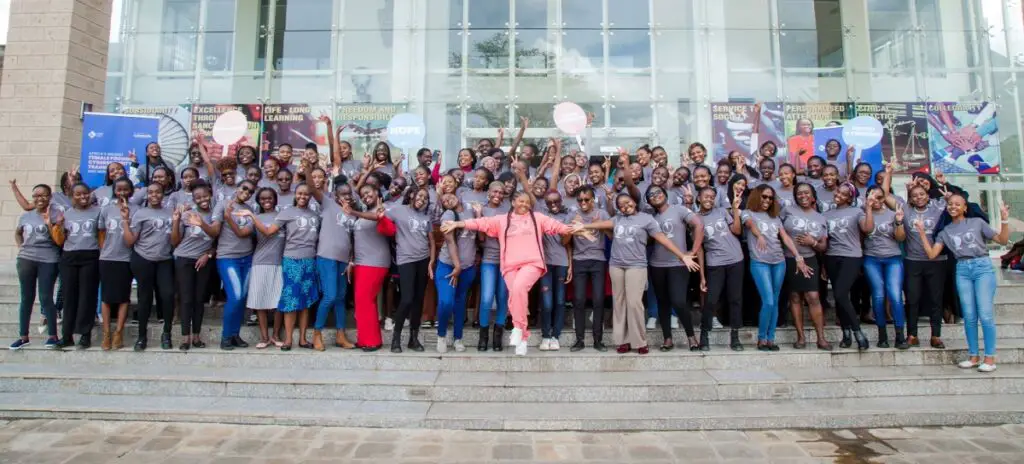- The demand for cybersecurity skills in Africa has increased by 35% over the past year.
- Africa has a significant digital skills gap, which could create 650 million training opportunities and a $130 billion market by 2030.
- An increasing number of companies are working to develop programs to reduce the IT skills gap on the continent.
Over the past few years, Africa is facing a significant digital skills gap, which is stunting growth of economies for the majority of the continent’s nations.
A study by the International Finance Corporation (IFC) indicates that by 2030, about 230 million jobs across the continent will require some level of digital skills. These opportunities have the potential of giving rise to 650 million training opportunities and an estimated $130 billion market.
To harness the emerging opportunities, an increasing number of local and international firms are developing programs to help reduce the IT skills gap on the continent.
Need for cybersecurity specialists
Their undertaking comes as the number of cyber-attacks across the continent keeps rising as cybercriminals target the media, businesses, and governments.
A Microsoft note dubbed the Digital Defense Report shows the volume of password attacks hit 921 attacks every second, a 74 per cent increase in just one year. According to Microsoft, cyberattacks have devastating impacts with the average cost of a cyber breach currently standing at $4.35 million.
“At the same time, we are facing a global cybersecurity skills crisis. Demand for cybersecurity skills has grown by an average of 35 per cent over the past year. We simply don’t have enough people with the skills to defend against cybersecurity attacks, putting people, businesses, and governments around the world at risk,” the report adds.
Read also: Africa’s cybersecurity challenges: An urgent call to arms
Gaps in Africa’s IT space
The gender gap in the IT industry has been a matter of great concern for the past several years. According to Microsoft, women make up only 25 per cent of the global cybersecurity workforce. The tech giant’s report says this number is even lower when it comes to the highly specialized realms of cybersecurity.
While achieving greater diversity in different roles is crucial in the IT and cybersecurity industry, there is an urgent need for women to pursue technical roles. A diverse workforce brings a wealth of different ideas, opinions, and innovations. The need for ideas becomes increasingly vital in technology, where biases persist, especially in artificial intelligence and facial recognition software.
However, fostering diversity within the IT and cybersecurity industry is only one aspect of addressing this gap. The other challenge lies in creating an inclusive environment that welcomes everyone.
Supporting more women in IT
While the gender gap may not disappear overnight, a culture of support instilled at all levels of an organization’s leadership could help transform the face of cybersecurity and IT industry.
At the moment, the industry is experiencing increased partnerships aimed at narrowing IT skills shortage across Africa. One such partnership is between Check Point Software Technologies Ltd and Cybersafe Foundation.
The collaboration will see girls attending Cybersafe’s program CyberGirls receive one year of free courses designed to equip women between the ages of 18 and 28 with globally sought-after technical skills.
Cybersafe Foundation is also creating awareness about cybersecurity while empowering communities to navigate the digital landscape through education.
Under CyberGirls initiative, the company seeks to uplift those living in underserved communities across Africa, helping them improve their socio-economic position while also combatting increasing threat of cybercrime.
Through the program, Check Point is working with over 160 academic partners, who serve over 45,000 students, across 60 countries. Their goal is to serve about 3.5 million cybersecurity job vacancies globally.
“We are extremely proud of the impact our programs have had on the lives of many of our fellows, helping young women gain access to life-changing opportunities. Our partnership with Check Point will contribute immensely to our disruptive educational model by providing free cybersecurity training to the CyberGirls community,” Founder and Executive Director of Cybersafe Foundation Confidence Staveley said.
Read also: Tech stakeholders urged to support women working in e-commerce
Developing youth IT skills in South Africa
Liquid Intelligent Technologies SA also recently announced that its Youth Empowerment Programme is making remarkable headway, preparing young South Africans with the skills they will need to succeed in a digital future.
The program, which is run in partnership with Forge Academy and the Royal Bafokeng Enterprise Development Centre, is making a positive impact. Already, 40 young South Africans are benefitting from the initiative.
“The Liquid SA Youth Empowerment Programme is aimed at equipping young people with the skills and support they need to become successful entrepreneurs in their communities and to empower them for the continent’s digital future. Along with our partners, we are dedicated to making a difference in the communities where we operate. Supporting skills development among unemployed youth is vital to improving the unemployment rate in our country and fulfilling our goal of leaving no African behind,” CEO of Liquid Intelligent Technologies SA Deon Geyser said.
They empower young people by providing them with comprehensive technical training, personal development mentorship, and coaching to power their entrepreneurship spirit.
The program also offers a Business Start-up Package, providing a small business grant to participants with business plans that showcase the potential of offering real-world solutions.
This financial boost will assist in kickstarting their ventures. By nurturing and equipping young entrepreneurs, the program paves the way for their success and contribution to economic growth and job creation. (https://softonic.com/)











